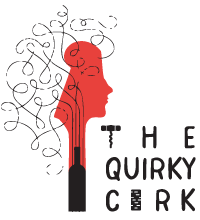
Barburi-The Grape of Antioch
Unless you’re a serious student of history and/or a fan of the Roman Empire, chances are if you’ve heard of the city of Antioch it was in church. I know that’s where I first heard the name uttered. Mostly I associated it with all the preachy letters from Saint Paul (never my favorite evangalist). Until I moved to Turkey.

Saint Pierre church in Hatay-one of the oldest Christian churches in the world
I feel every time I turn around I discover an ancient city (most of them from the Bible no less) that either has a new, Turkish name (for example Smyrna is now Izmir and Nicaea is Iznik); or lies in ruins under a modern Turkish city. Antioch is one of the latter. It never occurred to me before I came here that the beautiful coastal city, Antakya, lay over an ancient city where Saint Paul stomped around. And you absolutely know that he stomped. This was not an easy going man.
In recent months, the city has taken on a new connotation for me: the winery Antioche which takes its name from the old city. While the winery’s history does not date back nearly as far, it does have its own story to tell.

Barburi leaves
The Resurrection of Barburi
Winemaking is a living tradition in the region. Winery owner Abud Abdo explains that there is a strong wine culture in the area. If there weren’t, you wouldn’t be able to produce wine. “Wine has to be in you. It is in our blood to produce homemade wine.”
This is also true for Abdo. His grandparents made wine at home. Helping them with the process became a part of his childhood. As an adult, now the owner of a large textile factory, he took it up again as hobby. A hobby that consisted of just 2,000 bottles a year. Abdo established his vineyards in 2007 and has not looked back since. He took a 2,000 bottle a year hobby and turned it into a ~35,000 bottle boutique winery.
Barburi is unique to the Antakya region. In 2009 Hatay-based Antioche Winery brought the grape back from the brink of extinction. It remains the only winery in Turkey cultivating the grape. Abdo’s childhood memories of making wine with his grandparents were with this grape. Much like hunting  for precious mushrooms, people in the region have long sought out wild vines of Barburi grapes to use in home wine or pekmez (molasses). However, as a lot of these traditions die out, the locations of these wild vines have been forgotten. It wasn’t until Abdo went looking and brought cuttings back to his vineyard that the grape began its resurgence.
for precious mushrooms, people in the region have long sought out wild vines of Barburi grapes to use in home wine or pekmez (molasses). However, as a lot of these traditions die out, the locations of these wild vines have been forgotten. It wasn’t until Abdo went looking and brought cuttings back to his vineyard that the grape began its resurgence.
While Abud remembers his grandparents Barburi wine, he had no idea what to expect from a wine made with modern techniques. In 2016 Antioche released its very first 100% Barburi wine.
Abud compares his Barburi to Piedmont’s Barbaresco. Like its Italian counterpart, Barburi is extremely food friendly. Antioche’s Barburi pairs beautifully with many of the local specialties including hot green peppers and tepsi kebab.
Antioche Özel Seri 2017 Tasting Notes
Antioche currently uses Barburi for two wines: the varietal (below) and the Özel Seri (special series). The Özel Seri blends Barburi with Cabernet Sauvignon for a wine that is aged in oak for 12 months prior to bottling and release.
The wine began with aromas of stewed red fruits and sweet, baking spices like nutmeg. It wants a little time to open but when it did, it revealed fresher berry fruit and a hint of earthy herb. A round palate with 13.5% alcohol and a medium plus body displayed flavors very similar to the aromas on the nose.
Antioche Barburi 2017 Tasting Notes
Unlike the blended Özel Seri wine, the varietal Barburi underwent no oak aging. While including that as part of this wine (or perhaps a reserve Barburi label) isn’t off the table for the future, for the time being Antioche wants to show off the unadulterated grape. For me  this was the more interesting of the two wines because I really got to taste grape, exactly as intended. And what a grape it is.
this was the more interesting of the two wines because I really got to taste grape, exactly as intended. And what a grape it is.
Very fruity on the nose with aromas of black mulberry, black cherry, and sour cherry garnished with black pepper. On the palate the mulberry and cherry flavors were joined by blackberry, tomato leaf, and yet more black pepper all culminating in a spicy purple floral finish. A medium-bodied wine with 13.5% alcohol that’s silky and balanced and just a delight.
One of the issues I have with the majority of Turkey’s wine producers is that, aside from a very few, no one holds back wine to let it bottle age before release. So we end up with a lot of very young, often too young, wines on the market. Bottle aging is all up to the consumer and an even smaller portion of them bother to do it (or know they should). This makes me especially appreciate grapes like Barburi which are on the fresh side and can be drunk young. Although I look forward to seeing what a few years in the bottle will do for this!



